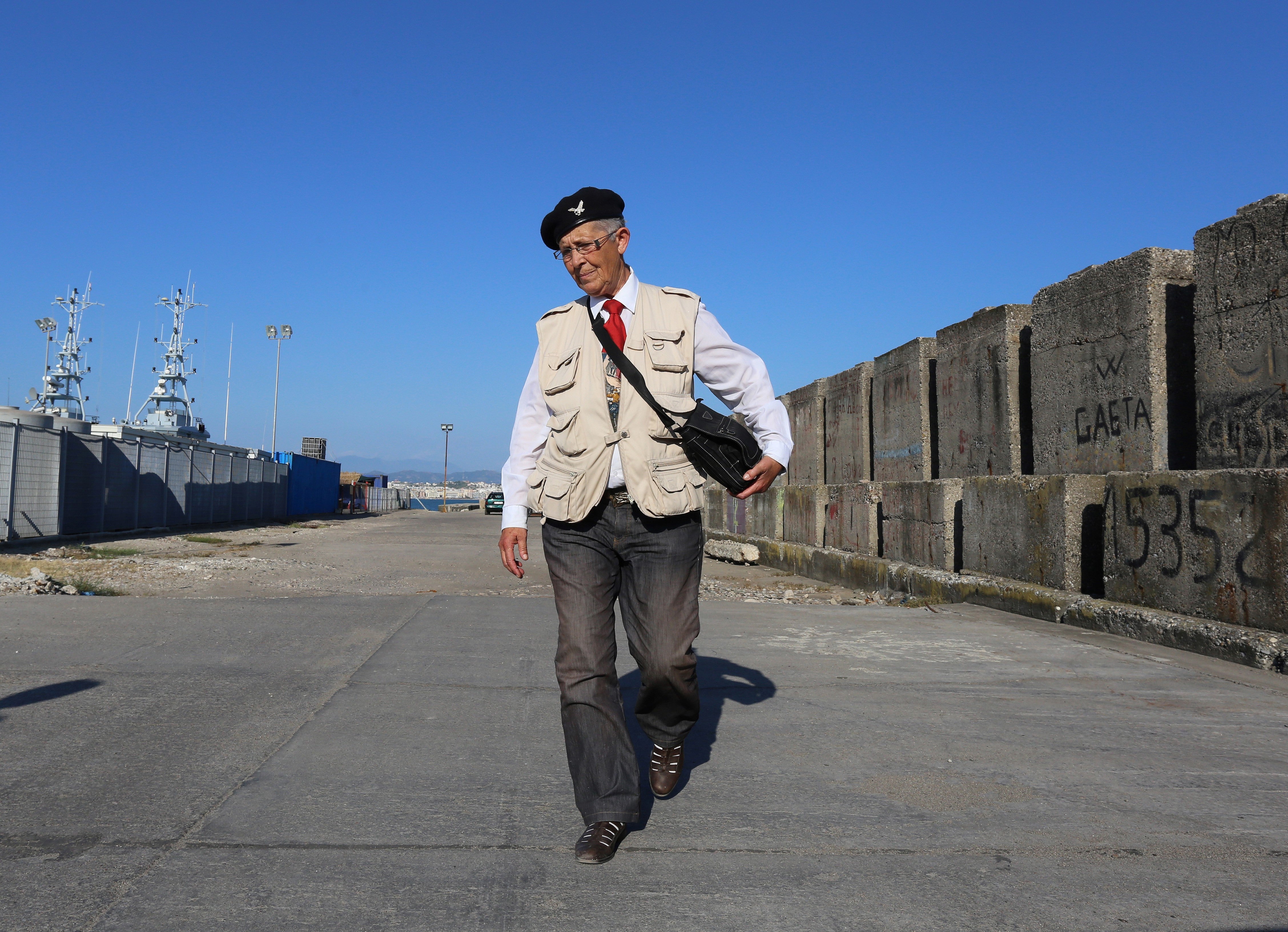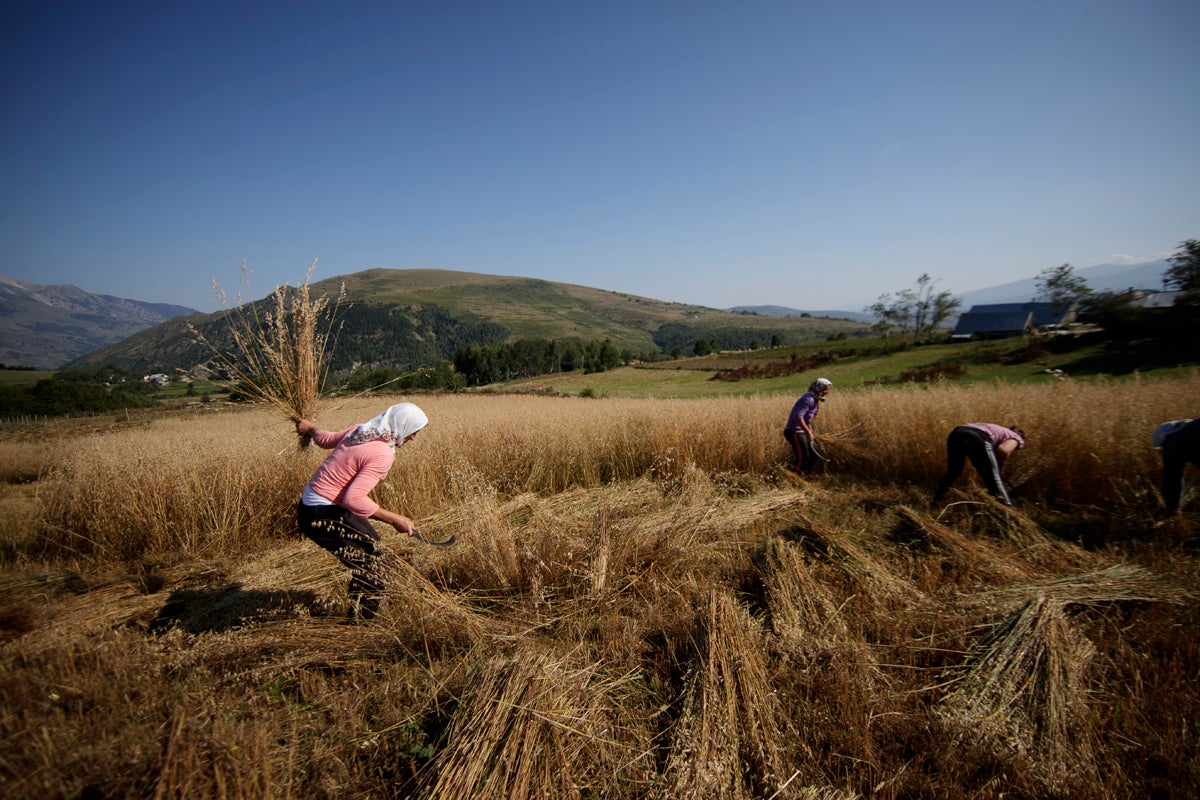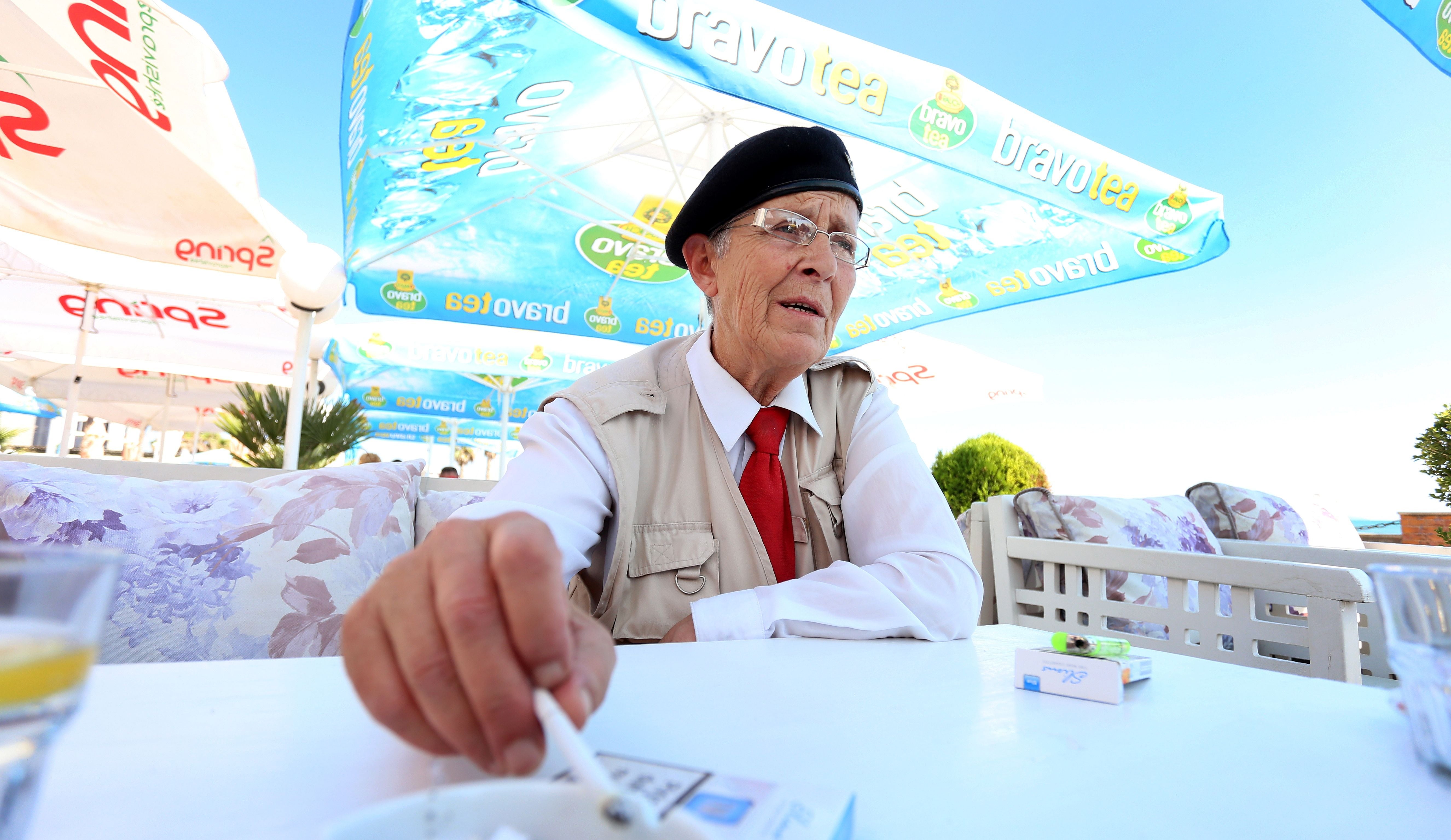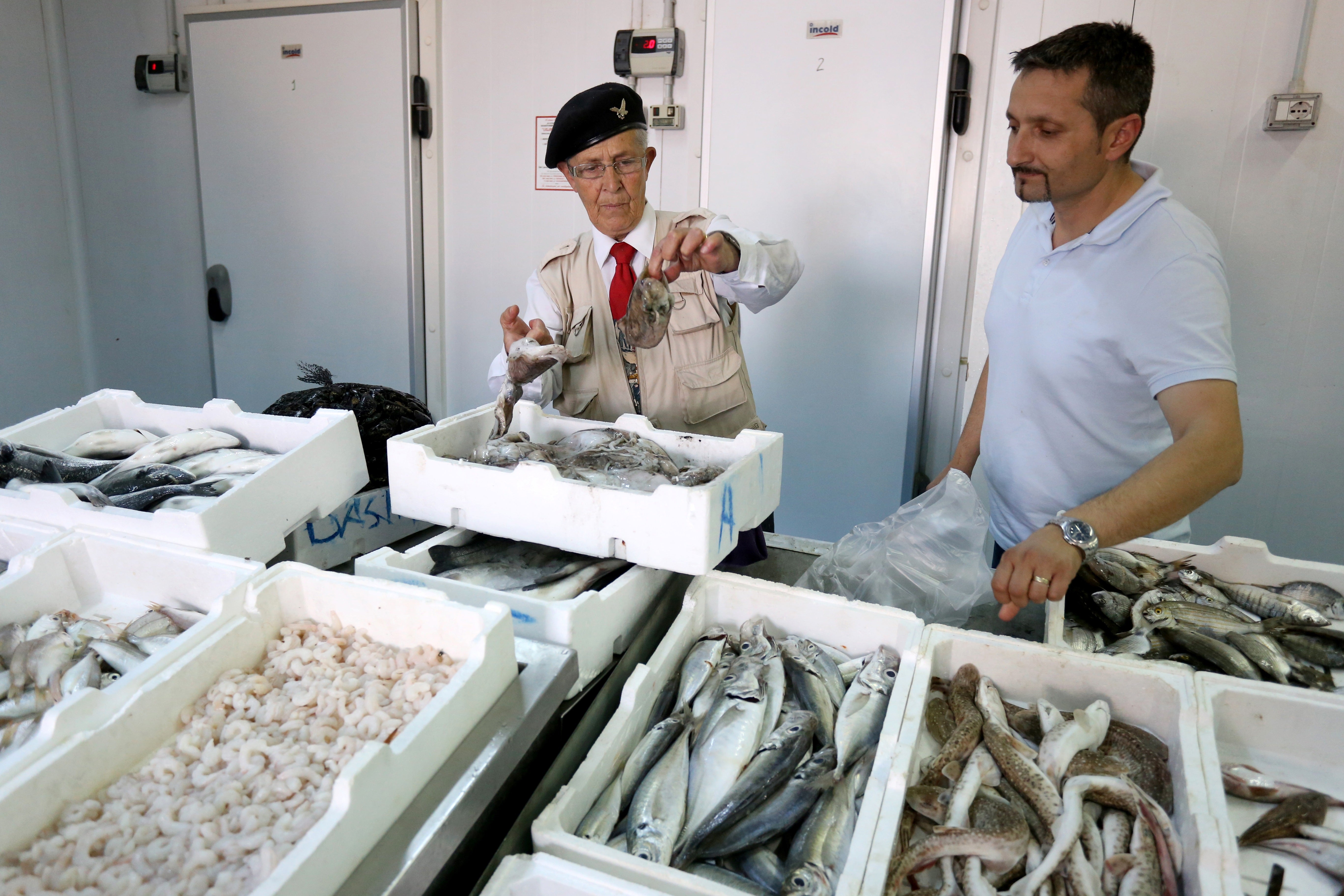Why are women in Albania shunning their ‘sworn virgins’ tradition?
Many took the oath so that they could escape forced marriages; some so that they could take on traditional male roles, like running a farm. Now fewer and fewer girls are taking this option, writes Andrew Higgins

Your support helps us to tell the story
From reproductive rights to climate change to Big Tech, The Independent is on the ground when the story is developing. Whether it's investigating the financials of Elon Musk's pro-Trump PAC or producing our latest documentary, 'The A Word', which shines a light on the American women fighting for reproductive rights, we know how important it is to parse out the facts from the messaging.
At such a critical moment in US history, we need reporters on the ground. Your donation allows us to keep sending journalists to speak to both sides of the story.
The Independent is trusted by Americans across the entire political spectrum. And unlike many other quality news outlets, we choose not to lock Americans out of our reporting and analysis with paywalls. We believe quality journalism should be available to everyone, paid for by those who can afford it.
Your support makes all the difference.As a teenager locked in a patriarchal and tradition-bound mountain village in the far north of Albania, Gjystina Grishaj made a drastic decision: She would live the rest of her life as a man.
She did not want to be married off at a young age, nor did she like cooking, ironing clothes or “doing any of the things that women do”, so she joined an Albanian fraternity of what are known as burrneshat, or “female-men”. She adopted a male nickname: Duni.
“I took a personal decision and told them, ‘I am a man and don’t want to get married,’” Duni recalls telling her family.
Few women today want to join what anthropologists call Albania’s “sworn virgins”, a tradition that goes back centuries. These women take an oath of lifelong celibacy and enjoy male privileges, such as the right to make family decisions, smoke, drink, and go out alone.
Duni says her choice was widely accepted, though her mother, who died in 2019, never stopped trying to get her to change her mind. Like other burrneshat, Duni – who remains Gjystina Grishaj on official documents – is still referred to in the traditional way, with female pronouns and forms of address, and does not consider herself transgender.
The fraternity that Duni joined nearly 40 years ago is dying out, as change comes to Albania and its paternalistic rural areas, allowing younger women more options. Her village – which is Christian, like much of the northern part of the country – has in recent years started to shed its claustrophobic isolation thanks to the construction of a winding road through the mountains, which attracts visitors but also provides a way out for strong-willed local women who want to live their own lives.
Many, like Duni, took the oath so that they could escape forced marriages; some so that they could take on traditional male roles – like running a farm – in families where all the men had died in the blood feuds that plagued the region; and others because they just “felt” like men.
“Society is changing, and burrneshat are dying out,” says Gjok Luli, an expert on the traditions of northern Albania. There are no precise figures for how many remain, but of the dozen or so he knows about, most are elderly. Duni, at 56, is perhaps the youngest, he says.
“It was an escape from the role given to women,” Luli says, “but there is no desperate need to escape any more.”
Among those now able to choose different paths in life is Duni’s niece, Valerjana Grishaj, 20, who decided as a teenager to leave the mountains and move to Tirana, Albania’s relatively modern-minded capital. The village, Grishaj explains over coffee in a Tirana cafe, “is not a place for me”.
Women today have much more freedom than before, and you don’t need to become a man to live your own life
“All my friends there have been married since they were 16,” she says.
But Grishaj says she understands why her aunt made the decision she did. “There were no strong, independent women up there,” she says. “To be one, you had to become a man.”
She praises her parents for letting her make her own choices. “I was very lucky, but parents like mine are rare,” Grishaj says, noting that most still pressure their daughters to marry as teenagers.
Albania, which was isolated under a communist dictatorship until 1991, has seen rapid economic and social development in recent years, and the country has become increasingly connected to the rest of Europe. But Tirana, to where Grishaj moved at 17 to study theatre directing, can still be a difficult place for a young woman trying to make her own way.
“The patriarchy still exists, even here in Tirana,” Duni’s niece says. Young women who live alone, she laments, are subject to nasty gossip and “are often seen as whores”.
The difference now, though, she says, is that “women today have much more freedom than before, and you don’t need to become a man to live your own life”.

By declaring herself a man, Duni was not striking at conventional gender norms but submitting to them. She also shares the strongly transphobic and homophobic views that are prevalent in Albania.
Men, everyone in her remote alpine hamlet of Lepushe believed, would always be afforded more power and respect, so the best way for a woman to share their privilege was to join them rather than trying to beat them.
“As a man, you get a special status in society and in the family,” Duni says, looking back on nearly four decades of dressing, behaving and being treated like a man. “I have never worn a skirt and never had any regrets about my decision,” she says.
Underpinning this tradition was the firm grip in northern Albania of the “Kanun”, a set of rules and social norms that classify women as chattel whose purpose is to serve men.
The low status afforded to women did give them one advantage, though: It exempted them from the battles that for centuries decimated northern Albanian families, as men from feuding clans died in a neverending cycle of vengeance killings. Parents whose sons had all been killed often urged a daughter to take on a male identity so that there would be a man to represent the family at village meetings and to manage its property.
A woman who became a sworn virgin was viewed as not entirely male, did not count in blood feuds, and therefore escaped being targeted for murder by a rival clan.
I have done this because I want to take on the role played by men and to get the respect of a man
Luli, the expert on local traditions, says one of his cousins, who went by the nickname Cuba instead of her original name, Tereza, was an only child and became a sworn virgin so she could avoid being married off and leaving her parents to fend for themselves. She died of old age in 1982.
He compares Cuba with a “woman who decides to become a nun”.
“It is the same kind of devotion,” Luli says, “only to the family instead of God.”
For Albanians pushing for gender equality, such devotion invokes mixed feelings. “Saying I will not take orders from a man is feminist,” says Rea Nepravishta, a women’s rights activist in Tirana. “Saying I own myself and will not be owned by a man is feminist.”
But, she adds, “being forced to be a man instead of a woman is totally anti-feminist; it is horrible”.
Inequalities enshrined by the Kanun, Nepravishta says, gave women a choice “between either living like a semi-animal or having some freedom by becoming a man”. While still strong, the patriarchy has lost some power and no longer confronts women with such stark choices, she says.

Some burrneshat say they declared themselves men simply because they never felt like women. Diana Rakipi, 66, a burrnesha in the coastal city of Durres, says: “I always felt like a man, even as a boy.”
Aggressively masculine in manner, Rakipi delights in being bossy. On a stroll near her tiny one-room apartment, she keeps stopping passers-by whom she thinks are acting improperly – like a boy she sees hitting his brother– and berating them.
Rakipi, who was raised in the north before moving south to Durres, says she took an oath of celibacy as a teenager, in front of dozens of relatives, and vowed to serve the family as a man. Born after her parents’ only son died from illness, Rakipi says she grew up being told she had been sent by God to replace her dead brother.
“I was always considered the male of the family. They were all so upset by the death of my brother,” she says, sitting in a cafe in which all the other customers are men. She wears a black military beret, a red tie, men’s trousers and a safari vest, its pockets stuffed with talismans of her eclectic beliefs, including a Christian cross and a medallion with the face of Albania’s onetime dictator, Enver Hoxha.
Rakipi snorts with contempt when asked about people who undergo transition surgery. “It is not normal,” she says. “If God made you a woman, you are a woman.”

Duni, from Lepushe village, also has strong views on the subject, saying that altering the body goes “against God’s will” and that people “should be put in jail” for doing so.
“I have not lived as a burrnesha because I want to be a man in any physical way. I have done this because I want to take on the role played by men and to get the respect of a man,” she says. “I am a man in my spirit, but having male genitals is not what makes you a man.”
Locals in Lepushe, says Manushaqe Shkoza, a server at a cafe in the village, were initially surprised by Duni’s decision to become a man, but it was accepted long ago. “Everyone sees it as normal,” Shkoza says.
Duni says she is sad that the tradition of sworn virgins will soon die out, but notes that her niece in Tirana has shown that there are now less-drastic ways for a woman to live a full and respected life.
“Society is changing, but I think I made the right decision for my time,” Duni says. “I can’t resign from the role I have chosen. I took an oath to my family. This is a path you cannot go back on.”
This article originally appeared in The New York Times



Join our commenting forum
Join thought-provoking conversations, follow other Independent readers and see their replies
Comments